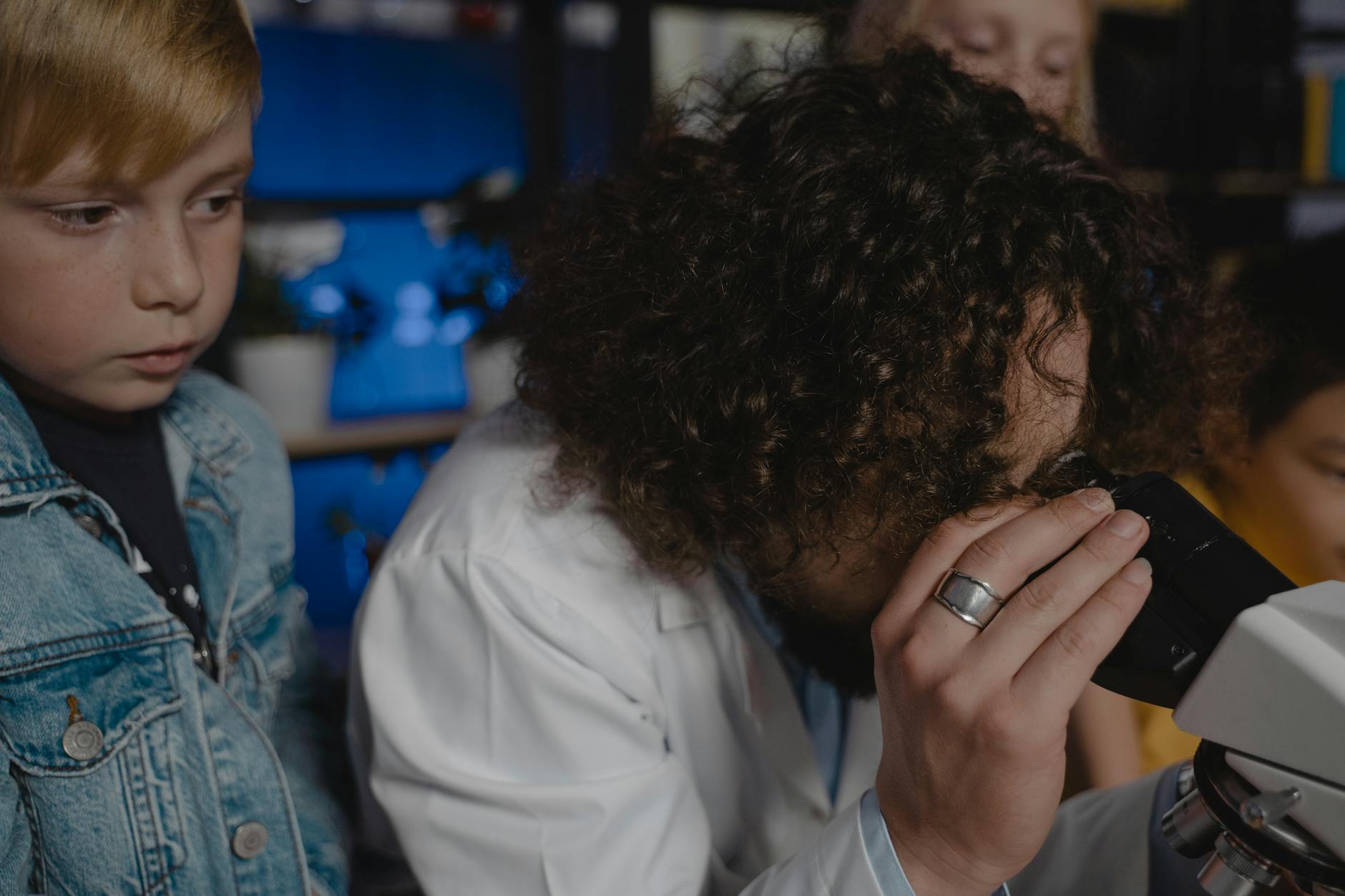How Australia's Innovative Mental Health Approaches are Shaping the Future of Care

Innovative Approaches in Australia
Community-Led Peer Support
In the vibrant area of Fortitude Valley, innovative grassroots initiatives are transforming the landscape of mental health support. These community-led peer support groups are pioneering change by encouraging locals to contribute to and share personal experiences, creating a more relatable and impactful support system. This approach empowers individuals to thrive within their communities, providing invaluable insight and encouragement.
Peer support has proven to be an effective method for improving mental well-being by offering a platform for individuals to connect and learn from others who have faced similar challenges. For those interested in furthering their understanding or involvement in mental health support, pursuing a diploma in early childhood education or a certificate iv in mental health can significantly enhance your ability to contribute to these community-driven efforts. It develops both practical skills and comprehensive awareness necessary for effective intervention.
Moreover, community-led initiatives serve as a key component in developing integrated care models within Australia. These models emphasize continuity of care, combining professional resources with grassroots efforts to create a cohesive support network. Whether you're exploring formal mental health courses or actively participating in peer networks, these innovative approaches foster a robust, collaborative community that supports holistic well-being for all members.
Impact on Patient-Centered Care
Personalizing Treatment Plans
Incorporating personalised treatment plans is fundamental to enhancing patient-centered care. As practitioners in fields like aged care, we must consider precisely tailored approaches to suit individual needs. For example, cert 3 childcare programs focus on understanding each child’s unique requirements, which can be adapted similarly for adult patients. To illustrate, in Queensland, visiting the Mental Health Centre can provide insights on how tailored interventions improve patient outcomes by addressing specific mental health needs.
Enhancing Accessibility
Improving accessibility involves removing barriers that prevent patients from receiving necessary care. In Brisbane, initiatives in Fortitude Valley show how community-engaged strategies can effectively bridge gaps. By making aged care courses more accessible, professionals can better serve their patients, honing skills to meet the diverse needs across different demographics. It is crucial for these educational programs to offer flexibility, allowing professionals to balance ongoing work commitments with educational pursuits.
Reducing Stigma with Education
Education plays a vital role in reducing stigma surrounding mental health and aged care services. Through comprehensive aged care courses, healthcare professionals can gain valuable knowledge, enabling them to provide care that is both empathetic and informed. Initiatives at The Gap demonstrate how community support programs can reshape public perceptions, fostering a more inclusive environment. Increasing awareness through education helps demystify mental health, encouraging people to seek the care they need without fear of judgment or marginalisation.
Training for Care Professionals
Specialized Mental Health Courses
For professionals like me in the healthcare industry, constantly upgrading our skills is not just a luxury but a necessity. Engaging in community services courses can significantly enhance our ability to provide comprehensive care, especially when serving ageing populations. Specialized mental health programs, such as a Certificate IV in Mental Health, can be beneficial for those of us looking to integrate mental health support into our patient care approach. These courses provide a robust framework for understanding diverse mental health conditions and preparing strategies tailored to each individual’s needs.
Incorporating Technology Skills
Incorporating technology into our day-to-day work is crucial for elevating the quality of care. For instance, learning to use innovative software and telehealth platforms can streamline processes such as patient monitoring and medication management. At The Gap, support programs often highlight the indispensable role technology plays in enhancing community services. Technical proficiency ensures we can efficiently utilise available resources and improve our service delivery.
Collaborative Learning Environments
Participating in collaborative learning environments has offered me the chance to interact with colleagues from various disciplines, fostering an exchange of ideas that fuels innovation. Through a mix of workshops, seminars, and practical sessions, these environments enable us to learn from each other’s experiences and apply best practices in our workplaces. For those interested in aged care training, these settings can provide a platform to discuss challenges and develop innovative solutions, ultimately leading to better care outcomes.
Future Trends in Care
Artificial Intelligence in Therapy
Incorporating artificial intelligence (AI) in therapeutic settings might revolutionize how mental health services are delivered. AI can offer insights into patient behaviors, helping therapists tailor individualized treatment plans. By enabling more precise child care courses and mental health support, AI-driven tools can enhance decision-making processes in care environments. Although AI complements rather than replaces human judgment, its integration unquestionably holds the promise of more efficient care models.
Expansion of Telehealth Services
Telehealth services are rapidly expanding, offering new avenues for reaching individuals who may not have had access to traditional healthcare facilities. These services provide proactive solutions to the long-standing issues of accessibility and convenience in mental health care. Digital platforms allow healthcare professionals to conduct consultations, diagnostics, and even therapy sessions online. Childcare courses online can now be designed with a telehealth perspective in mind, equipping future professionals with vital skills for remote service delivery.
Cross-Disciplinary Innovations
Cross-disciplinary approaches are fostering new levels of collaboration among healthcare providers, enhancing patient outcomes. By integrating insights from various fields—such as technology, psychology, and social work—these innovations offer multidimensional perspectives on care. This holistic approach is reshaping traditional models, marrying diverse expertise to tackle complex mental health challenges more effectively.
These future trends signify a paradigm shift, where modern tools are breaking down barriers and crafting more inclusive, adaptable care solutions.
Overcoming Hurdles in Care Delivery
Resource Limitations
Resource limitations can be a significant barrier to implementing innovative community services. In regions such as The Gap, where tailored mental health initiatives are evolving, it's crucial to creatively work around these constraints. One viable strategy is to leverage existing assets by fostering community support programs that harness local skills and expertise. For example, local professionals in Fortitude Valley might volunteer their time, providing valuable services and filling resource gaps effectively.
Policy Navigation
Navigating policy barriers is another challenge. It requires a concerted effort to engage with policymakers and advocate for flexible regulations that support community-based mental health solutions. Bringing together stakeholders from varied disciplines and using platforms like the Queensland Mental Health Centre for dynamic dialogue can drive collective policy action. Inspired advocacy can ultimately shape an environment where local innovations thrive.
Equitable Access
Ensuring equitable access to mental health services across Brisbane is vital. Community planners need to focus on equity adjustments in healthcare distribution, particularly in underserved areas. Initiatives might include mobile health clinics making fortnightly visits to isolated areas or launching digital literacy workshops in community centres to ease telehealth adoption. These grassroots initiatives effectively bridge the gap between innovative care models and those who need them most, ensuring all individuals have equal opportunities for accessing necessary help.
By tackling these challenges head-on, we're not just addressing immediate needs but also laying the groundwork for a future where innovative mental health services are accessible, equitable, and sustainable.


